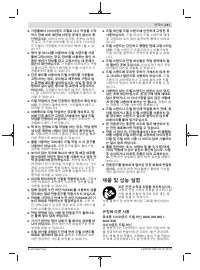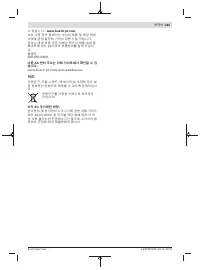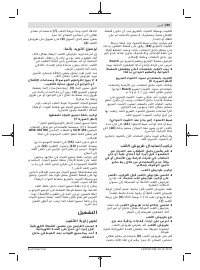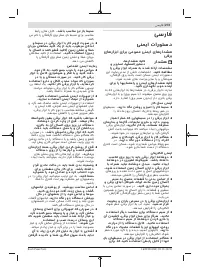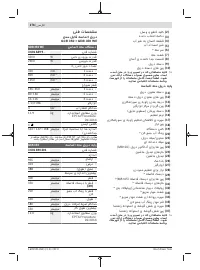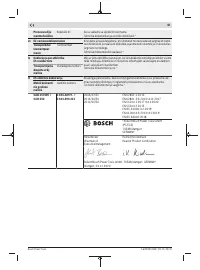Дрели Bosch GDB 350 WE - инструкция пользователя по применению, эксплуатации и установке на русском языке. Мы надеемся, она поможет вам решить возникшие у вас вопросы при эксплуатации техники.
Если остались вопросы, задайте их в комментариях после инструкции.
"Загружаем инструкцию", означает, что нужно подождать пока файл загрузится и можно будет его читать онлайн. Некоторые инструкции очень большие и время их появления зависит от вашей скорости интернета.
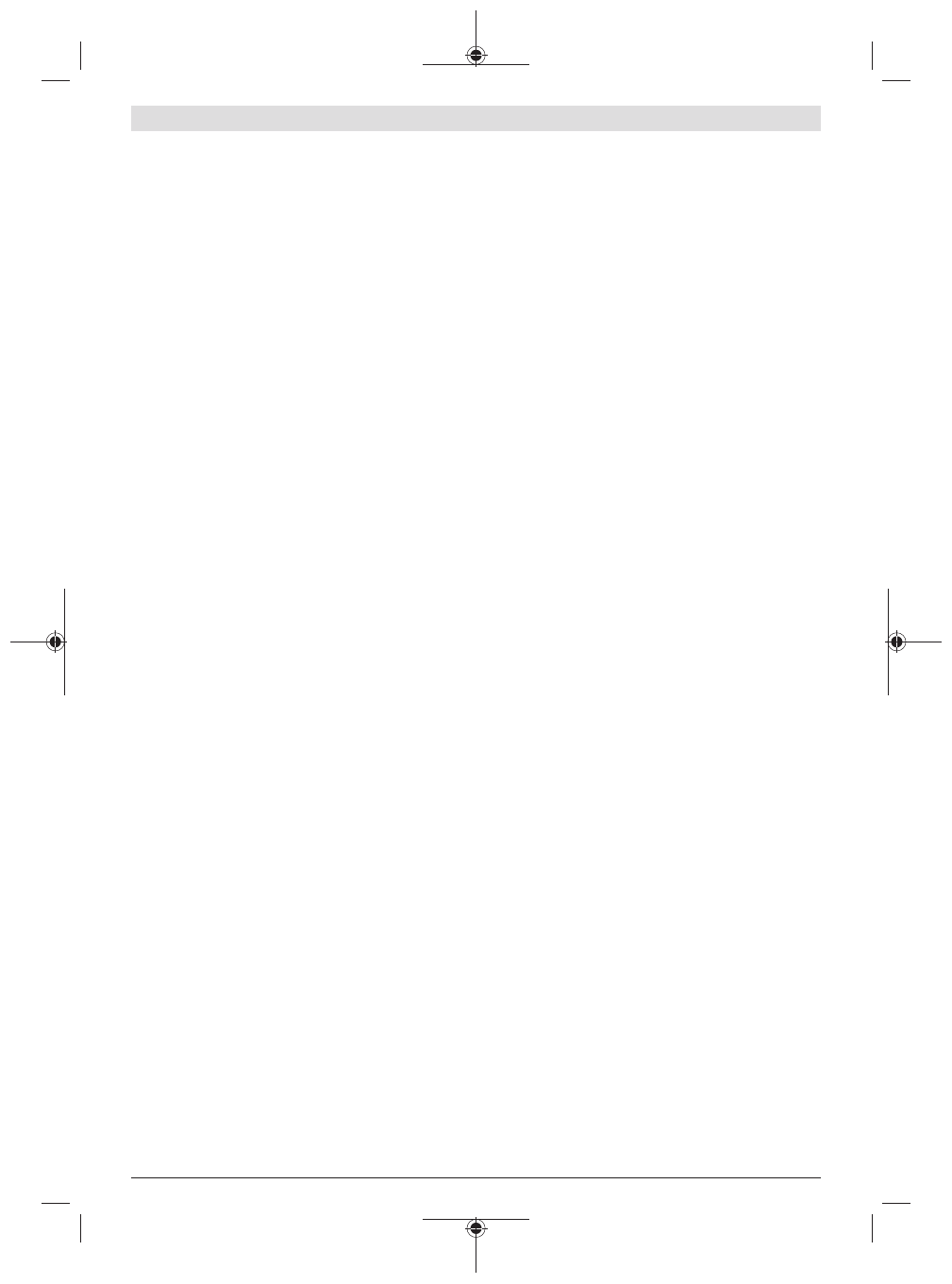
English |
21
Removing the core bit
u
Wear protective gloves when changing the core bit.
The core bit may become hot when the power tool is op-
erated for extended periods of time.
Detach the core bit
(6)
using an open-ended spanner (width
across flats 41 mm). When doing so, hold a second open-
ended spanner (width across flats 32 mm) on the two flats
of the drill spindle
(7)
to provide counterforce.
The easy-release element
(8)
makes it easier to remove the
core bit
(6)
.
Connecting the water cooling system
If wet core bits are not kept sufficiently cool during drilling,
the diamond segments can become damaged or the core bit
can get stuck in the drill hole. It is therefore important to en-
sure a sufficient feed of water when wet-drilling.
When expanding an existing hole, this must be sealed care-
fully to allow the core bit to be sufficiently cooled.
u
Connected hoses, shut-off valves or accessories must
not interfere with drilling.
Close the water cutoff valve
(5)
. Connect a water supply line
to the valve adapter
(4)
. The water supply line can be
provided from a mobile pressurised water tank (accessory)
or a stationary water connection.
You will need a water collection ring and a wet/dry extractor
(both accessories) to collect the water that escapes from the
drill hole during wet drilling.
Fitting a water collection ring for water extraction
(see figure F)
The water collection ring (see "Accessories/replacement
parts", page 23) is intended for use with the drill stand for
diamond drills
GCR 350
and the diamond drill
GDB 350 WE
.
Cut an opening for the required drilling diameter in the seal-
ing cover.
Push the tension spring
(35)
as far as possible into the gap
between the base plate
(19)
and drill column
(21)
. Make
sure that the angled section of the tension spring is facing
downwards.
Put the water collection ring in position and place the ten-
sion spring on the contact points on the water collection
ring. (The lugs on the ends of the tension spring are used to
pull the tension spring upwards.)
The tensioning force of the spring will press the water collec-
tion ring with its seal onto the surface. Together with the va-
cuum of the wet/dry extractor, this will prevent water from
escaping.
The water collection ring can be turned inside its tension ring
in order to put the extraction outlet in the necessary position
(e.g. to optimise the water drainage when drilling holes hori-
zontally). To do so, open the lock of the tension ring on the
water collection ring, turn the water collection ring as re-
quired and close the lock again.
Operation
Changing the drilling angle
u
Pull the plug out of the socket before carrying out any
work on the power tool.
u
Always retighten all the screws after making adjust-
ments to the drill stand.
Loosen the cap nut
(17)
using the star handle
(15)
.
Set the drill stand to the required drilling angle using the
drilling angle scale
(13)
. Refer to the arrow next to the cap
nut
(17)
to set it exactly.
Tighten the cap nut
(17)
hand-tight using the star
handle
(15)
.
u
The drill stand must not be inserted until the cap nut
(17) of the angle adjustment has been retightened.
Starting operation
u
Pay attention to the mains voltage.
The voltage of the
power source must match the voltage specified on the
rating plate of the power tool.
u
Seek advice from the responsible structural engineer,
architect or construction supervisor regarding
planned drill holes before starting work. Do not penet-
rate any reinforcements unless you have authorisa-
tion from a structural engineer.
u
When drilling holes that penetrate walls or ceilings, al-
ways check the area concerned for obstacles. Close
off the work site and prevent the drill core from falling
by means of formwork.
Function test of the portable residual current device
(PRCD)
Before starting work, always check that the portable residual
current device (PRCD)
(1)
is functioning correctly:
– Press the
TEST
button on the residual current device
(PRCD). The red indicator light will switch off.
– Press the
RESET
button. It must now be possible to
switch the power tool on.
If the red indicator light does not switch off when you press
the
TEST
button or it switches off repeatedly when the
power tool is switched on, you must have the power tool
checked by an authorised
Bosch
after-sales service centre.
u
The power tool must not be used if the portable resid-
ual current device (PRCD) is defective.
Switching on
Press the
RESET
button on the portable residual current
device (PRCD)
(1)
.
Set the water cutoff valve
(5)
to flow.
To switch on the power tool, rock the on/off switch
(2)
to
position
1
.
Switching off
To switch off the power tool, rock the on/off switch
(2)
to
position
0
.
Bosch Power Tools
1 609 92A 4NK | (21.01.2021)
Характеристики
Остались вопросы?Не нашли свой ответ в руководстве или возникли другие проблемы? Задайте свой вопрос в форме ниже с подробным описанием вашей ситуации, чтобы другие люди и специалисты смогли дать на него ответ. Если вы знаете как решить проблему другого человека, пожалуйста, подскажите ему :)

































































































































































































































































